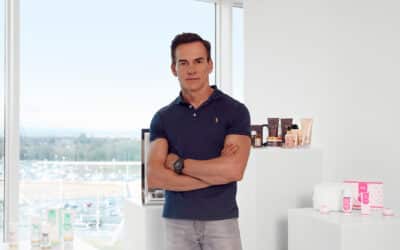THG has confirmed the acquisition of free London business newspaper, City AM in a pre-pack deal from administrators, BDO.
The newspaper was put up for sale earlier this month, after it failed to recover readership, in the wake of the pandemic and commuters working from home.
The paper’s co-founder, Lawson Muncaster, said the deal with the North West ecommerce group was a “perfect fit”
“We both believe firmly in the power of business to make peoples’ lives better and we cannot wait to get started with our new partners,” he added.
In March, Manchester-based THG, was urged by activist investor Kelso to “reinvigorate” its “relationship and communications” with the investment community in order to move to the Premium List of the stock market. Whether buying a business newspaper was what it meant remains to be seen.
However, THG’s founder and CEO, Matthew Moulding, who himself has taken aim at “fake news and media intrusion” explained that they already publish magazines, Myprotein and LookFantastic.com, with a combined ABC circulation of 600k.
“All media, from Instagram to Vogue, are middlemen between consumers and brands. Content brings consumers, and brands pay to get in front of them,” he stated last night.
THG has told City AM that they will invest in both editorial and technology within the newspaper as well as expanding its lifestyle and sports categories.
City AM’s had a readership of around 2m monthly unique online visitors and a daily print circulation of 70k Mondays to Thursdays.
Its 40 editorial and commercial staff will join THG Group.
Co-founder and CEO, Jens Thorpe will retire from City Am once the deal is completed:
“During our 18 years we’ve faced a few storms but none as turbulent as the past three years.
“We managed to survive lockdown but unfortunately we didn’t have the money to invest in digital and build on the strong progress we saw during the pandemic.
“I’m therefore delighted that a business like THG has taken over City A.M. Their digital expertise will be a great asset, so after 18 years I take comfort in the knowledge that our ‘little baby’ will grow and become more than a teenager.”
Speaking on the deal, Moulding added that THG currently spent over £200m “speaking to consumers” and that the acquisition would enable City AM to return to profit.
“Years ago, newspapers worked closely with businesses to understand the UK market and whip up public support for UK policies. This helped drive UK competitiveness on a global stage. But that model is long gone,” he explained.
“Maybe Twitter played a part, a platform where wild controversy and views can be aired without the same media regulation, dragging huge audiences away from traditional media. Add TikTok and Meta into the mix and competition to attract eyeballs is a crowded space. Traditional media has had to adapt to stay relevant, and no doubt has shifted closer to the Twitter model than many will admit. After all, audience numbers are what matter in driving ad revenues.
“The fact that most of Britain’s media is foreign owned can’t be ideal. Almost all the press have long abandoned their LSE listings. Even the Financial Times recently raised the white flag, left the LSE, and sold itself to the Japanese.
“So, while THG is mostly interested in building ad tech reach with CityAM, it has to be a good thing that one of the UK’s most influential business papers remains in UK ownership.”
He reassured journalists that neither he nor “nor the Board” would be “driving editorial content.”
“[…] there are far more talented people out there to do this. But there’s a clear gap in the UK business media, one that supports and appreciates UK business, and is keen to see the UK improve our global competitiveness. CityAM, THG, and our partners, will now step up further to fill this gap, loud and clear.
“And so, supported by unswerving investment from THG, there will be just one rule for the future editorial direction of CityAM:
“‘Where possible, be a cheerleader for both the UK and businesses alike, and don’t get dragged over to the dark side.’”
An interesting turn of phrase given that for many journalists the “dark side” would be to become purely a “cheerleader.”












